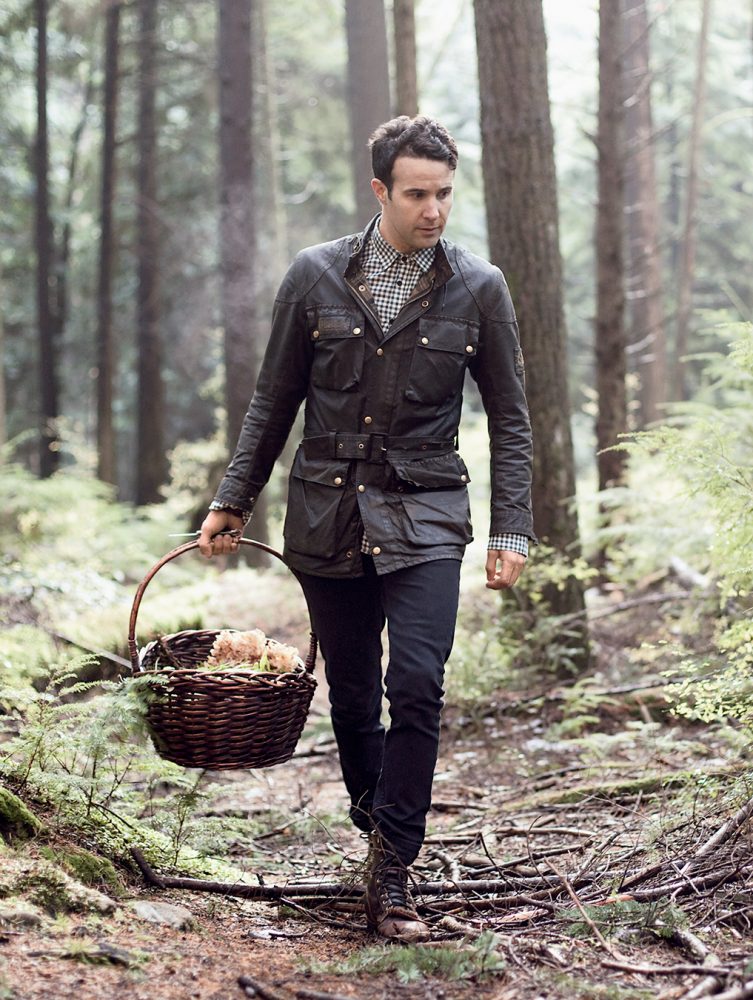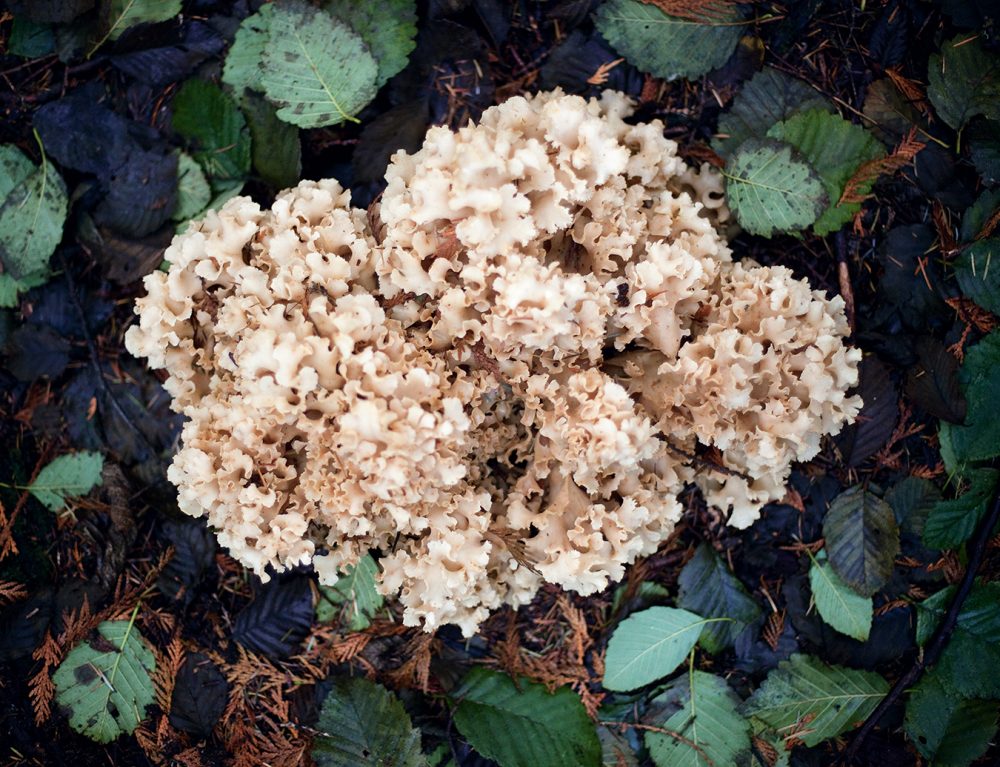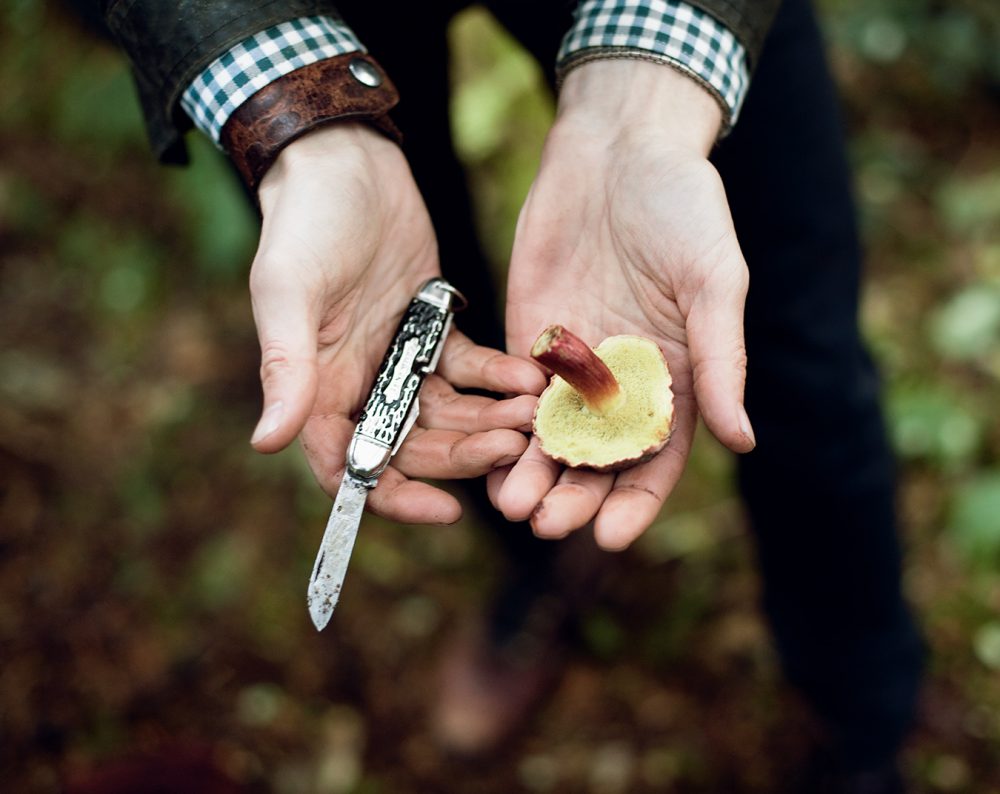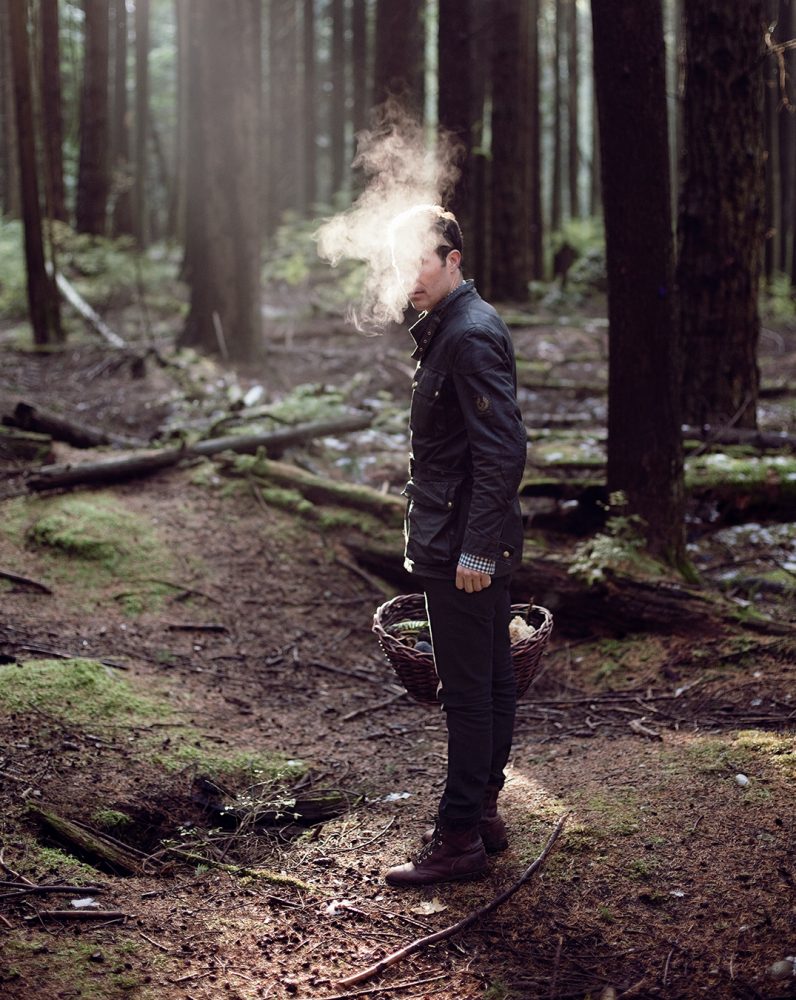The December 2011 edition of Food Arts magazine declared foraging the culinary trend of the year. It noted that foragers, both professional and amateur, and chefs are roaming fields and forests gathering wild edibles. Highlighted among them were chefs René Redzepi of Denmark’s Noma and, nearer to home, Blaine Wetzel of Willows Inn on Lummi Island in Washington state.
In Vancouver, chefs have long been hooked up with Mikuni Wild Harvest’s Tyler Gray, supplier of all things wild, natural, and foraged. The Sechelt, B.C.–raised locavore’s foraging ways were imparted to him at a young age thanks to the close relationship he has with his mother, and his farming, hunting, and gathering grandparents from Rock Creek, B.C.
It wasn’t until eight years ago, however, that Gray began calling at restaurant doors, pulling up in his old, beat-up van full of wild local mushrooms, sea beans, berries, truffles, domestic caviars, and more. Yet today, Mikuni Wild Harvest has grown into a unique, in-demand B.C. business that sources and markets foraged foods, specialty vegetables, and exotic fruits together with premium condiments like oils, vinegars, and syrups, and supplies them to North America’s top chefs, including superstars Thomas Keller, Daniel Boulud, Eric Ripert, David Bouley, and Mario Batali.
On board from the earliest days, Vancouver chefs Hidekazu Tojo, Pino Posteraro, Robert Clark, David Hawksworth, Dale McKay, Andrey Durbach, Rob Feenie, Lucais Syme and Adam Pegg have all remained loyal customers among Mikuni’s diverse clientele. “At the beginning, we were doing something very different,” Gray says. “We’d show up at restaurant doors with whatever bounty we had. The chefs would literally run out of their kitchens and they’d pick out whatever they wanted from the back of our vans.”
At the time, Gray also began developing a relationship with Tim and Gord Weighill from Nakusp in the B.C. Interior, two brothers who were exporting highly prized matsutake (pine mushrooms) to Japan, and shipping chanterelles and morels to Europe. “I had been on the foraging circuit for a while and knew of them. I was impressed on how they ran their business, cared about people, developed relationships,” Gray recalls. “They were just great people. I came in when there wasn’t much of a domestic market [for mushrooms]. We were—and still are—dismayed that wild North American foraged mushrooms are being exported to other countries, when you can hardly find these treasures here in our own grocery stores.”
“We’d show up at restaurant doors with whatever bounty we had. The chefs would literally run out of their kitchens and they’d pick out whatever they wanted from the back of our vans.”
The trio hit it off and had an idea to start a small boutique company to service top restaurants with these products, the thousands of pounds of great mushrooms—chanterelles, matsutake, black trumpets—that were going to big wholesale companies. “We wanted to bring the most unique, high-quality, and diverse foraged foods to top tier restaurants right across North America. But we also wanted to share them, and our knowledge of wild foods, with the public,” Gray says.
In 2004, Mikuni Wild Harvest was a go. “Our company has grown from three people who did most of the foraging themselves or with their families to now where we have offices and warehouses in Vancouver, Kelowna, Seattle, New York, and Las Vegas, with over 40 people—many of whom are chefs or professional foragers themselves.”
Spend a few hours foraging and you’ll look at our local forests differently; once you cast your eyes to the ground, a world of delicious discovery awaits. An early morning hunt with Gray, rambling through a forest not far from downtown Vancouver, reveals several species of mushrooms—chanterelle, Zeller’s bolete, cauliflower, shrimp russula, milk cap, and yellow foot—as well as wild licorice. “Foraging is addicting,” he says, as he discovers patch after patch of mushrooms. “We can easily pick enough for a week.”
The name Mikuni comes from Japanese, translating roughly to “beautiful forest”. And as Gray explains, “[Foraging] gives you a different relationship with nature. You’re more interactive, you’re really engaged, and your eyes are fully open. You see the landscape and the environment with a completely different view. A lot of what we walk by is food. It’s delicious healthy, flavourful, and honest food that you can find anywhere.”
Today, Gray continues to hunt and gather both professionally and for pleasure, and foraging remains the backbone of the business. About 55 per cent of Mikuni’s business is wild, foraged foods. “But in order to thrive and grow,” Gray says, “we knew we had to capture more of the plate. We knew we wouldn’t survive unless we started expanding.”
Now, excited chefs are asking for all kinds of unusual ingredients like nut oils and rare herbs that Gray will happily source for them. “It grew from there, from foraged foods to smoked steelhead caviar to Indonesian lemon vinegar,” he says. Some of the more obscure requests have included dirt, moss, leaves and branches, barnacles, and rare varieties of roots, and Gray recently shipped a few gallons of ocean water to Moto restaurant in Chicago, where it was used to create a foam.
Unfortunately these rare, local products aren’t always available year-round—mushrooms especially—so Gray and the Mikuni team have built relationships with fruit and vegetable farmers in Southern California who practise sustainable agriculture. Each week, restaurants can place an order with Mikuni, which the team will then pick to order from the Santa Monica Farmers’ Market and ship within 24 hours. “They are doing some of the most interesting things,” Gray says, describing the fresh pineapples, quince, blood oranges, carrots, aged black garlic, cippolini onions, garbanzo beans, satsuma oranges, baby purple artichokes, and Meyer lemons he buys.
“Foraging gives you a different relationship with nature. You’re more interactive, you’re really engaged, and your eyes are fully open.”
Mikuni’s story is truly unique and has caught the attention of many small producers, like an Oregon farmer who grows red-fleshed Mountain Rose apples—green on the outside, red on the inside—and doesn’t want to give them to a big industrial produce house. Gray loves the relationships he has with his wide-ranging fleet of farmers and foragers from Alaska and Haida Gwaii to the Southern United States. Running Squirrel, a 70-year-old Cherokee Native American from Oregon, “has taught me a lot about foraging,” Gray says. “He’s a hunter-gatherer like his mother, and brings me vegetables and wild ginger root. I’ll take whatever he has.” But sourcing from these individuals isn’t always easy. “We have a ramp forager in West Virginia who goes by the name ‘Crazy Harry’. He doesn’t have a cellphone or a computer—in fact, I’m not even sure he has electricity in his cabin. But he has the best ramps around, so keeping in touch with him usually means getting collect calls from pay phones and trying to work out the logistics from there. It’s always a lot of laughs.”
It’s no wonder Gray is so passionate about bringing more wild, natural foods to everyday consumers. Beyond the company’s online shop, Mikuni Wild Harvest is a regular at the Vancouver Farmers’ Markets selling locally foraged foods in season. In spring, there are morels and porcini mushrooms, fiddleheads, different wild lettuces, salad mixes, and watercress. Soon there will be a summer crop of black trumpet, blue oyster, and chanterelle mushrooms. Stinging nettles are sometimes available if they haven’t been scooped up for La Quercia’s stinging nettle risotto. Locally, Whole Foods and Choices Markets sell the Chef’s Blend, a cleaned, sliced, ready-to-use mix of foraged mushrooms, and the Micro Intensity Mix of micro-greens.
Gray continues to develop Mikuni’s line of Noble Handcrafted Tonics that includes heirloom lemon–matured white wine vinegar, bourbon barrel–aged maple syrup, and other wickedly decadent products sold locally at the Dirty Apron Delicatessen, the Old Faithful Shop, Thomas Haas, and Edible Canada at the Market. There are also plans to expand into preserved natural foods that Gray and his partners will call the “Fat of the Land” series. It could include anything from wild mushrooms and ramps to fiddleheads and berries.
“In the meantime,” Gray says, “we’ll continue to expand Mikuni as a niche specialty food company, continue to develop relationships with chefs, and continue to grow organically.” Surely, they’ll continue to forage, too.














